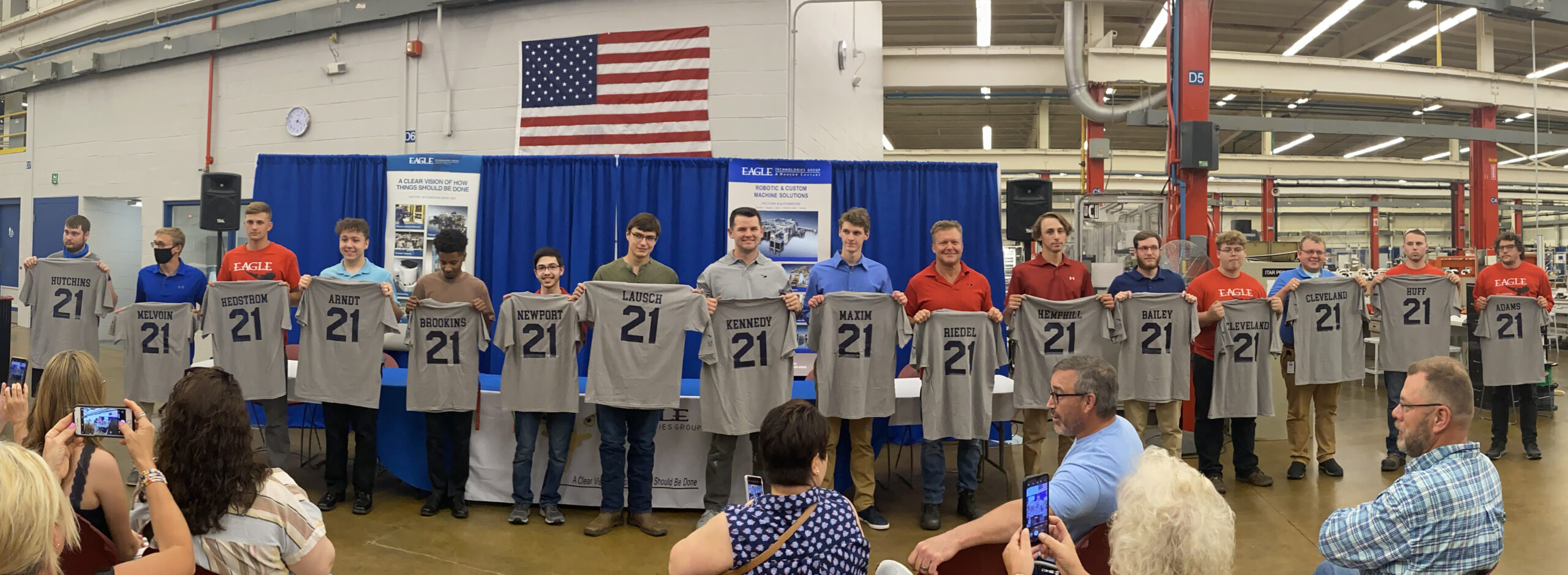New skills will be required as manufacturers shift from old-line manufacturing to incorporate more sophisticated technologies.
It’s no secret that the manufacturing industry is facing a skills gap crisis. The causes behind it are varied, but the biggest factors are the retirement of the baby boomers and a younger generation that has largely chosen not to pursue manufacturing careers which are viewed as dangerous, dirty, and vulnerable to both automation and outsourcing overseas.
In many ways, the perception of a job shortage has become a self-fulling prophecy. And the irony is that many of the younger workers choosing careers elsewhere are doing so without realizing that automation is making manufacturing jobs both less dangerous and less dirty, while also creating new opportunities for stable careers.
This is because the skillsets demanded of the previous generation of line workers look much different from those expected of today’s manufacturing workers. The old skillsets focused on specialization in one or two technical roles, wherein the worker was expected to follow fixed and unchanging procedures and adhere to general production and safety requirements. Jobs were much more physical, and typically involved operating and maintaining mechanical machinery.
By contrast, modern worker requirements place a higher emphasis on personal and technological skills. Employers are looking for workers who exercise greater independence and problem solving skills, communicate well and cooperate with their team, and are technologically competent around computers and computer-operated machinery.
In other words, to understand the skills gap, we should first look at the skills required of modern manufacturing workers. These fall into roughly three groups: traditional manufacturing skills, technological skills, and human skills.
I. Specialized manufacturing skills.
To start, many of the occupations that manufacturers have been struggling to fill the most still carry traditional job titles such as “welder,” “machinist,” or “fabricator.” These jobs require training in specific manufacturing skills, such as blueprint reading, knowledge of mechanical and electrical engineering processes, and the operation of machine tools.
Although these job titles are traditional, many of the skills required to succeed at them have changed. For instance, fabricators may now be expected to know how to work with 3D printing, while a machinist may need to be familiar with how to program a CNC machine.
These skillsets can be acquired through specific training programs at a community college or trade school, or on the job through an apprenticeship program. Manufacturers who are interested in filling these positions should consider developing connections within their community to support a pipeline of qualified graduates.
II. Technological skills.
Second, while the skills gap may largely be one of demographics, advanced technology has added a new layer to the problem. As manufacturing technology has grown more advanced, even those workers with significant experience in tradecraft may not have the digital skills to operate the new machinery.
These technological skills include the ability to program autonomous robots to perform tasks and to understand how equipment is connected to the Industrial Internet of Things. Many of these digital skills can be learned with additional training or through apprenticeship, but others may require extended formal education.
For instance, expertise in data analysis, advanced computer skills, and computer programming are all expected to become more crucial in increasingly digitized factories. As these technologies evolve and Industry 4.0 becomes ever more ingrained into manufacturing settings, familiarity with augmented reality technology may also become a requirement.
III. Interpersonal skills.
Finally, the so-called “soft skills” include a range of qualities that are unique to human workers and that will be either difficult, impossible, or undesirable to replace with automation. These include skills such as attention to detail, cooperation with colleagues, creative problem solving, initiative, and independent thinking.
In many ways, these are the most crucial skills for workers in the manufacturing field to develop. Unfortunately, they’re also the hardest to define or test for. There isn’t any formal training in “attention to detail,” and there hasn’t been an IQ or personality test yet that can reliably show which job candidates will cooperate best with coworkers. As desirable as these skills are, finding candidates who possess them is more difficult than listing them as requirements on a job posting.
Instead, manufacturers have two reliable options for growing a workforce with these qualities. First, they can create practical portions of their hiring process that would have candidates working in situations that would require these skills. Second, they can be proactive in cultivating these skills from within.
Eagle’s apprenticeship program is growing the manufacturing workforce.
Eagle has long recognized the need in our industry for a well-trained workforce, especially in the realm of automation. Our apprenticeship program, which we run in partnership with the Hanson Technology Center, is a four-year commitment to apprentices including benefits, paid vacation and holiday time, health plans, and more. Over the course of our program, we focus on developing skills that will set apprentices on career paths as tool makers, electrical technicians, fluid technicians, and machinists.
Specific skills developed by our program include:
- Manufacturing Skills
- Advanced Manufacturing Processes
- Engineering
- Machine Tool Fundamentals
- Technical Mathematics
- Blueprint Interpretation
- CNC Programming
- CAD & Manufacturing
- Advanced Electrical Schematics
While the program is an important talent growth path for our own organization, we also see it as essential to the health of the overall industry. If our customers are going to make the best use of the advanced manufacturing solutions we supply, they will need workers with the skills to program and operate them. Contact us today to get started.
The future of manufacturing depends on skilled workers who have benefited from training in both technical and interpersonal skills. We’re proud to be leaders in their development.
![]() Connect With Eagle Technologies LinkedIn
Connect With Eagle Technologies LinkedIn
Eagle Technologies, headquarters in Bridgman, MI
Eagle builds the machines that automate manufacturing. From high-tech robotics to advanced product testing capabilities, Eagle offers end-to-end manufacturing solutions for every industry.

